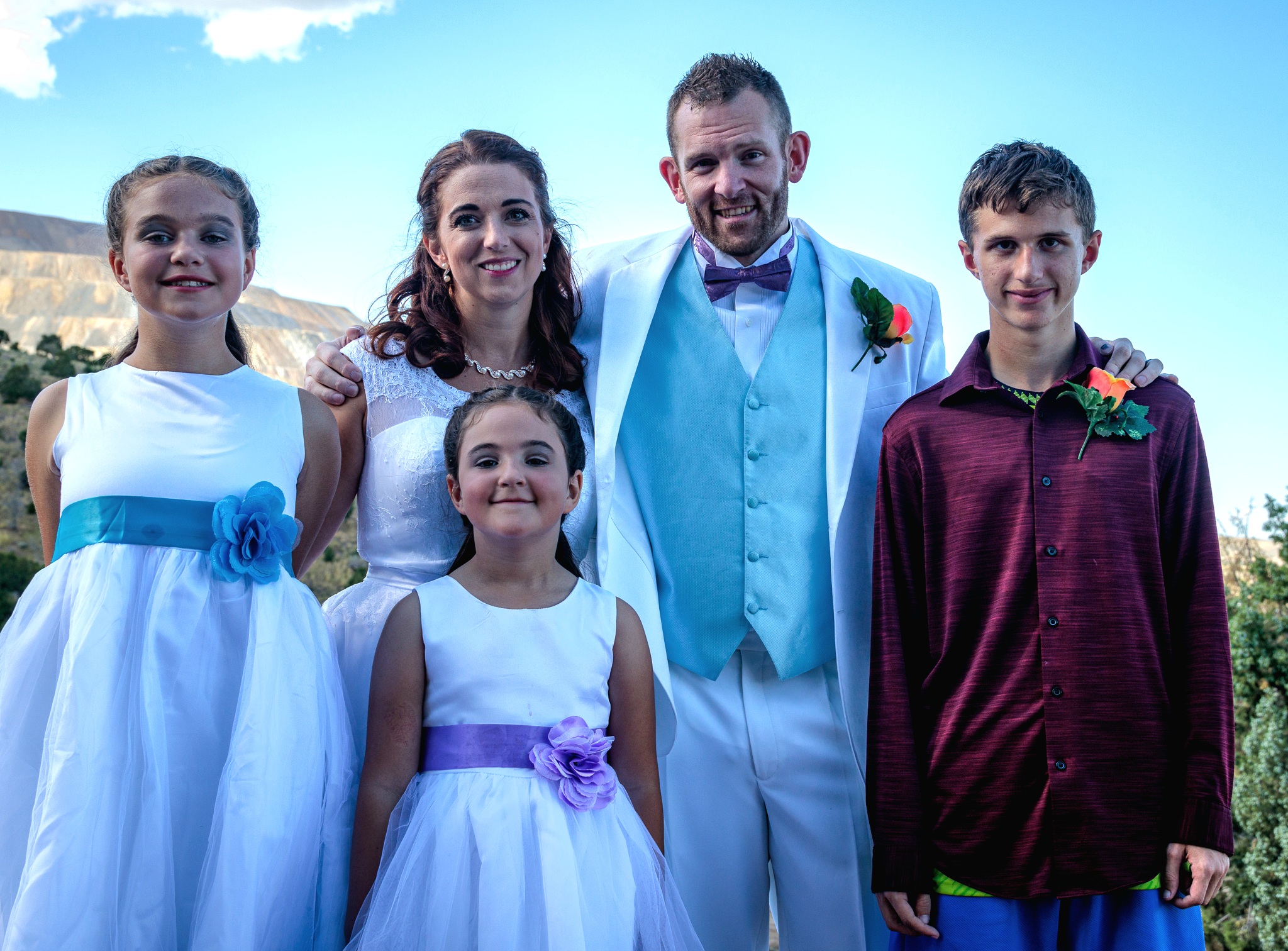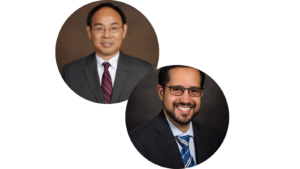
Amanda hopes her cancer journey is a positive example for her kids
April 22, 2024
This is a guest post by Amanda Reitz, a mother of three children who were 13, 9, and 5 years…
Read More
Dr. Jianjun Gao and Dr. Pavlos Msaouel received a 2021 Advanced Discovery Award for their project “Identification of tumor frameshift neoantigens to accurately predict response to immune checkpoint therapy in renal cell carcinoma.” Both Gao and Msaouel are based at MD Anderson Cancer Center in Houston, Texas.
We spoke with Gao and Msaouel about their work and what it could mean for people with kidney cancer.
How did you develop the idea for this project?
Cancers that respond to immune checkpoint therapy often have high frequency of mutations at the DNA level that generate unique proteins which the immune system can identify and target as foreign. But kidney cancer does not have such high mutation burden even though it is one of the cancers that is most responsive to immune checkpoint therapy. We believe that this may be because kidney cancer instead produces unique proteins through processing errors at the RNA level which generate frameshift neoantigens that can be identified and targeted by the immune system. We have the technology to comprehensively identify and analyze these frameshift neoantigens with a simple blood test. This may allow us to identify which patients with kidney cancer have the right number and type of frameshift neoantigens to facilitate responses to the currently available immune checkpoint therapies.
What is the potential impact for patients?
If we confirm that the frameshift neoantigens detected by our simple blood tests can predict responses, then we can spare unnecessary treatments for patients whose tumors are unlikely to respond to the currently available immune checkpoint therapies. This will allow us to better tailor our treatment approaches to each patient.
How would immune checkpoint therapy be presented to a patient as a potential treatment option currently? How might your research affect this?
Even though immune checkpoint therapy has revolutionized the treatment of metastatic kidney cancer, a substantial proportion of patients do not benefit from the currently available regimens. Our research may help identify the patients with kidney cancer who are unlikely to benefit, determine why they are unlikely to benefit, and how we can develop new immunotherapy regimens, such as cancer vaccines, that can meaningfully help these patients.
As two clinician scientists, how does your lab work inform your clinical work, and vice versa?
As clinicians, our bench research teaches us how unique each patient’s cancer is at the molecular, cellular and histological scales. This knowledge helps guide our decisions on cancer therapies and tailor them to the unique needs of our patients. As scientists leading our own laboratory teams, we are motivated and educated by the patients we treat in our clinics. They enable us to identify unmet research needs and develop clinically relevant research questions that can be translated from the bench to the bedside and back again.
What motivates you?
Our foremost motivation is helping our patients. We are grateful for the patients that are cured and honor those lost by steadfastly continuing our research work so that one day all patients will be free of cancer. As physician-scientists we strive to ensure that no stone is left unturned for all our patients.
Anything else you’d like others to know about you or your work?
A key aspect of our work is the synergy between our labs and clinical interests. We regularly discuss how to best translate new research findings into meaningful contributions for our patients, while playing off each other’s strength. This culture of collaboration generated our Advanced Discovery Award project and we plan to continue working closely together for the benefit of our patients.